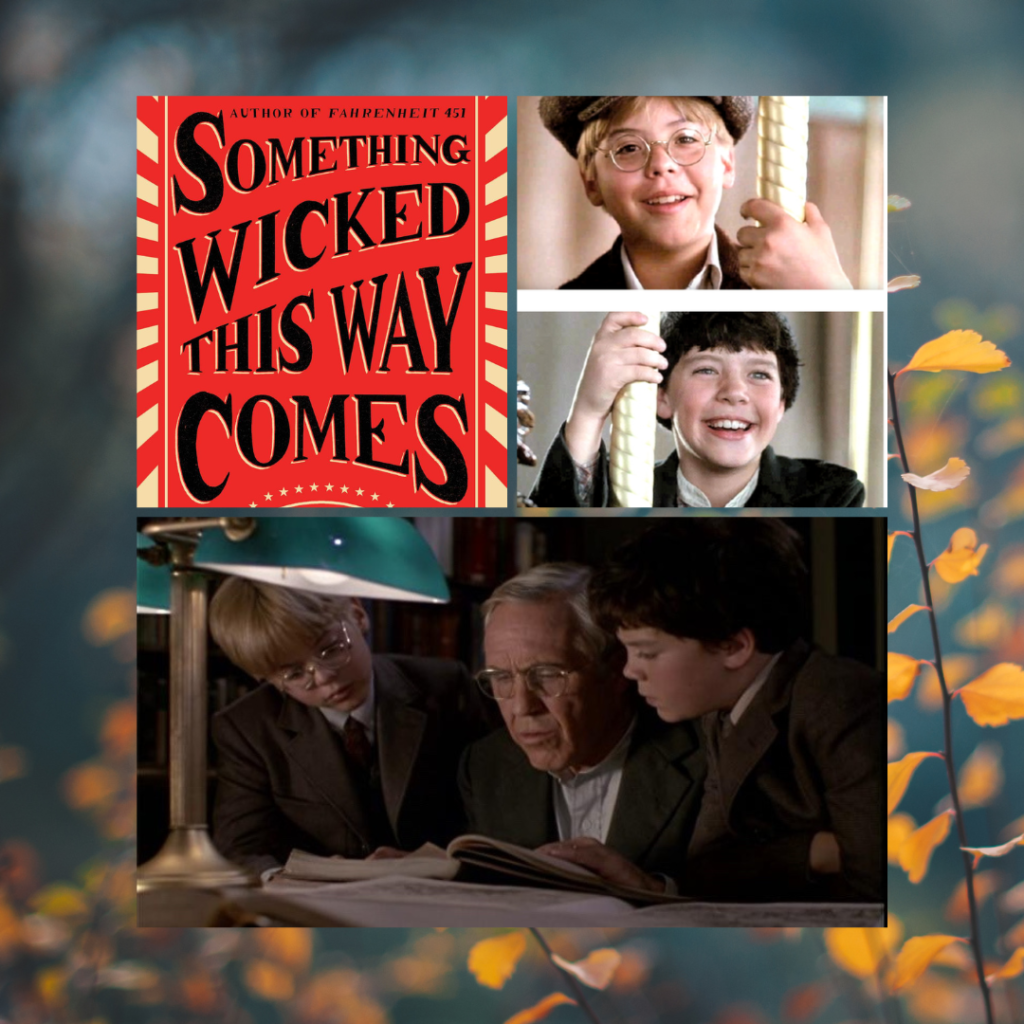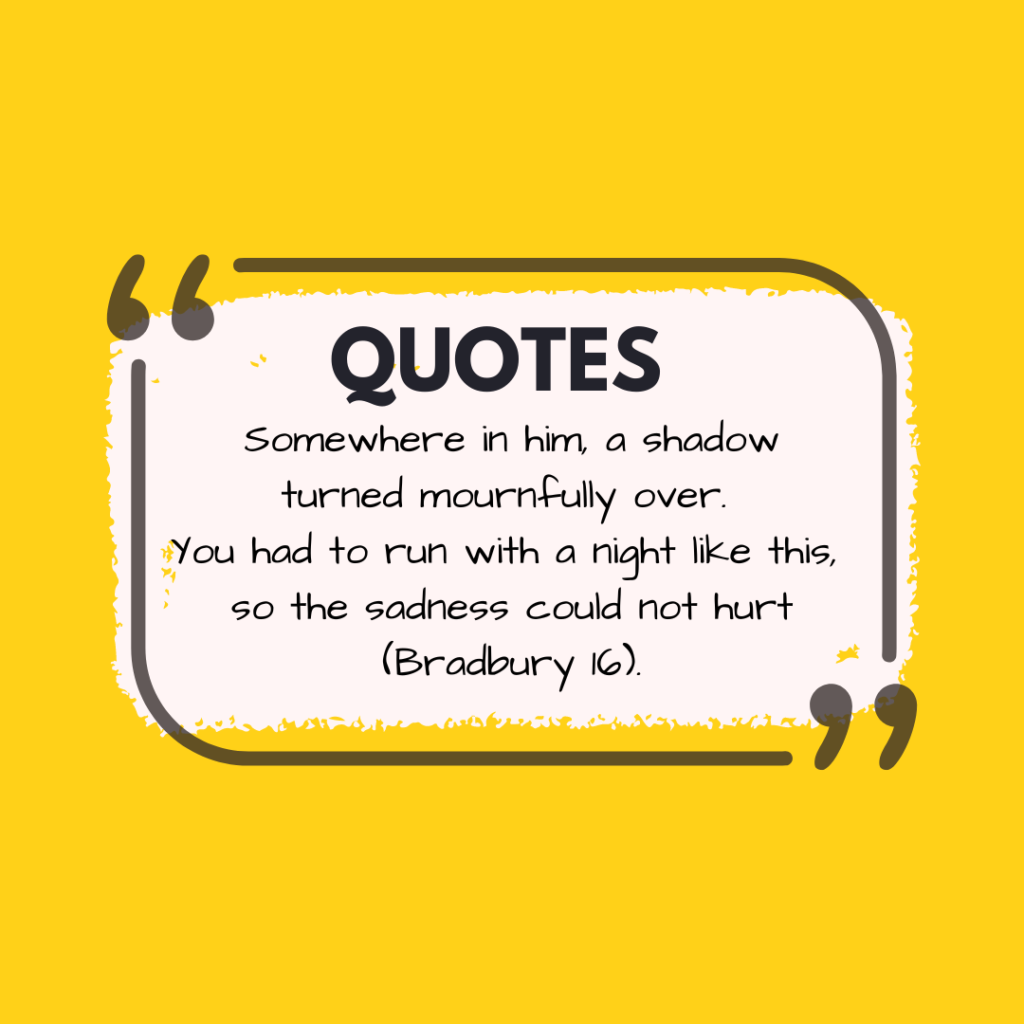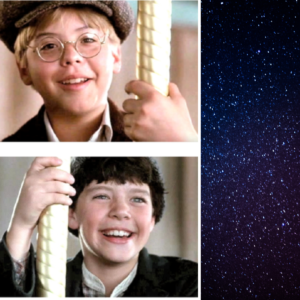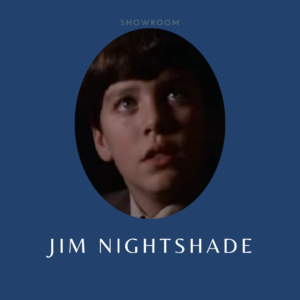
Work Cited
Bradbury, Ray. “Prologue.” Something Wicked This Way Comes: A Novel, Reprint, Simon and Schuster, 2017.
*****************************************************,
Chapter 3
You can read Chapter 3, in its entirety, at the end of the post.
Watching the boys vanish away, Charles Halloway suppressed a sudden urge to run with them, make the pack. He knew what the wind was doing to them where it was taking them, to all the secret places that were never so secret again in life. Somewhere in him, a shadow turned mournfully over. You had to run with a night like this, so the sadness could not hurt.
******************************************************

[In college, I wrote my first master’s thesis on William Blake. In high school, I learned to love William Blake’s Songs of Innocence and Experience, and I feel that parts of Something Wicked This Way Comes is an encore performance of William Blake’s Songs of Innocence and Experience. Blake’s mission in life was to warn people against becoming emotionally old. In Something Wicked, Will and Jim Nightshade are emotionally young. They run, they laugh, they leap, and they FEEL. Will’s father, Charles Halloway, is emotionally old. He drags himself through life. He whispers his broom, as he sweeps. He wishes he could still run, but he simply does not have the energy anymore. His shadow is that he remembers a time that was different for him, and in his son Will, he sees his shadow self.]
“No matter how many leaves would the tree of your soul have in front of the intense heat in the words of Time in this world, they can never shade the eternity lost inside you.”
― Sorin Cerin, Wisdom Collection: The Book of Wisdom
Ray Bradbury makes it clear that Charles Halloway is a washed-up, wasted soul. Although the elder Halloway is obviously brilliant, his job is that of working at the library–as a janitor. He is hesitant and cowardly. He has essentially given up on life.
******************************
Back to the story
Look! he thought. Will runs because running is its own excuse. Jim runs because something’s up ahead of him.
Yet, strangely, they do run together.
What’s the answer, he wondered, walking through the library, putting out the lights, putting out the lights, putting out the lights, is it all in the whorls on our thumbs and fingers? Why are some people all grasshopper fiddlings, scrapings, all antennae shivering, one big ganglion eternally knotting, slip-knotting, square-knotting themselves? They stoke a furnace all their lives, sweat their lips, shine their eyes and start it all in the crib. Caesar’s lean and hungry friends.
***********************************
[One way that Bradbury develops characters is by comparing them and contrasting them. Will and Jim are definitely different, and yet, they tend to run together “in a pack.”

Will and Jim as a Pair–Two Boys as 1 Character
Will Halloway and Jim Nightshade are the two main characters in Something Wicked This Way Comes. At times, each of the boys acts independently, but often, the two boys act as a unit. In my opinion, the Two-Boys-Joined-as-a-Pair functions as a character that is separate from each of the boys, when viewed separately.
“…two boys, far up the gentle slope, lying on the grass. Of a like size and general shape, the boys sat carving twig whistles, talking of olden or future times, content with having left their fingerprints on every movable object in Green Town during summer past and their footprints on every open path between here and the lake and there and the river since school began.” Bradbury, pg. 15.
” ‘I was born one minute before midnight, October thirtieth….” Bradbury, pg. 16.
“…the boys had told the tale all their lives, proud of their mothers, living house next to house, running for the hospital together, bringing sons into the world seconds apart; one light, one dark. There was a history of mutual celebration behind them. Each year Will lit the candles on a single cake at one minute to midnight. Jim, at one minute after, with the last day of the month begun, blew them out.” Bradbury pages 16-17.

Will Halloway is a boy who is filled with light. Ray Bradbury harnesses the literary theme of darkness versus light or night versus day in his novel Something Wicked This Way Comes.
the first boy, with hair as blond-white as milk thistle, shut up one eye, tilted his head, and looked at the salesman with a single eye as open, bright and clear as a drop of summer rain.
‘Will,’ he said. ‘William Halloway.’” (Bradbury 8).

In most ways, Jim was the opposite of Will.
“His hair was wild, thick, and the glossy colour of waxed chestnuts. His eyes, fixed to some distant point within himself, were mint rock-crystal green.”
“‘Nightshade. That’s quite a name.’” (Bradbury 8).
“…’Jim was born one minute after midnight, which makes it October thirty-first.’ ‘Hallowe’en,’ said Jim.” (Bradbury 8).
 “They eat the dark, who only stand and breathe.
“They eat the dark, who only stand and breathe.
That’s Jim, all bramble-hair and itchweed.
And Will? Why he’s the last peach, high on the summer tree.” (Bradbury 16).

Some boys walk by and you cry, seeing them. They feel good, they look good, they are good. Oh, they’re not above peeing off a bridge, or stealing an occasional dime-store pencil sharpener; it’s not that. It’s just, you know, seeing them pass, that’s how they’ll be all their life; they’ll get hit, hurt, cut, bruised, and always wonder why, why does it happen? how can it happen to them?
But Jim, now, he knows it happens, he watches for it happening, he sees it start, he sees it finish, he licks the wound he expected, and never asks why; he knows. He always knew.
********************************************
[This always knowing is a primordial, instinctive knowledge. It is something that runs deeper than words.]

Someone knew before him, a long time ago, someone who had wolves for pets and lions for night conversants. Hell, Jim doesn’t know with his mind. But his body knows. And while Will’s putting a bandage on his latest scratch, Jim’s ducking, waving, bouncing away from the knockout blow which must inevitably come.
So there they go, Jim running slower to stay with Will, Will running faster to stay with Jim, Jim breaking two windows in a haunted house because Will’s along, Will breaking one instead of none, because Jim’s watching. God how we get our fingers in each other’s clay. That’s friendship, each playing the potter to see what shapes we can make of the other.

Jim, Will, he thought, strangers. Go on. I’ll catch up, someday. . . . The library door gasped open, slammed.
************************************
The above paragraph alludes to another of the tenets of Romanticism. William Blake was a Romantic poet. William Wordsworth was another. He said the following:
“The Child is father of the Man…”
This is another way of saying that the innocence of childhood is preferable to the emotionally old. The innocent child feels and responds to nature. The emotionally old have become too old and callous to care.
Again, Will and Jim represent childlike innocence and Charles Halloway is the dried, empty, shell of what he formerly was, but unlike many of the emotionally old, he knows what is happening

back to the story –
Five minutes later, he turned into the corner saloon for his nightly one-and-only drink, in time to hear a man say:
‘. . .I read when alcohol was invented, the Italians thought it was the big thing they’d been looking for for centuries. The Elixir of Life! Did you know that?
‘No.’ The bartender’s back was turned.
‘Sure.’ the man went on. ‘Distilled wine. Ninth, tenth century. Looked like water. But it burnt. I mean, it not only burnt the mouth and stomach, but you could set it on fire. So they thought they’d mixed water and fire. Fire-water, the Elixir Vitae, by God. Maybe they weren’t so far wrong thinking it was the Cure-all, the thing that
worked miracles. Have a drink!?’
‘I don’t need it,’ said Halloway. ‘But someone inside me does.’ ‘Who?’
The boy I once was, thought Halloway, who runs like the leaves down the sidewalk autumn nights. [Once again, Charles realizes that he has become emotionally old.]
But he couldn’t say that.
So he drank, eyes shut, listening to hear if that thing inside turned over again, rustling in the deep bons that were stacked for burning but never burned.

page 18
********************
[Earlier in this chapter, Bradbury repeats 3 times the phrase “putting out the lights.”
Before now, I have not mentioned that lights also have to do with enlightenment–a knowing that understands. As Charles Halloway left the library, the place with the books that Halloway loved to read–the books through which he lived his life–he was turning out his own enlightenment. At the beginning of the story, Charles Halloway IS the library. He does not exist outside the library. When he does leave the library, he gasps for air.] “The library door gasped open, slammed.” (Bradbury 17}.
Outside of the library, Charles Halloway is a fish out of water. He cannot breathe. He cannot see. His eyes are shut, and in an effort to cope, he drinks. It is significant, however, that Charles Halloway isn’t even a good drunk. He only has one drink each day.

Chapter 3
Watching the boys vanish away, Charles Halloway suppressed a sudden urge to run with them, make the pack. He knew what the wind was doing to them where it was taking them, to all the secret places that were never so secret again in life. Somewhere in him, a shadow turned mournfully over. You had to run with a night like this, so the sadness could not hurt.
Look! he thought. Will runs because running is its own excuse. Jim runs because something’s up ahead of him.
Yet, strangely, they do run together.
What’s the answer, he wondered, walking through the library, putting out the lights, putting out the lights, putting out the lights, is it all in the whorls on our thumbs and fingers? Why are some people all grasshopper fiddlings, scrapings, all antennae shivering, one big ganglion eternally knotting, slip-knotting, square-knotting themselves? They stoke a furnace all their lives, sweat their lips, shine their eyes and start it all in the crib. Caesar’s lean and hungry friends.
They eat the dark, who only stand and breathe.
That’s Jim, all bramble-hair and itchweed.
And Will? Why he’s the last peach, high on the summer tree. Some boys walk by and you cry, seeing them. They feel good, they look good, they are good. Oh, they’re not above peeing off a bridge, or stealing an occasional dime-store pencil sharpener; it’s not that. It’s just, you know, seeing them pass, that’s how they’ll be all their life; they’ll get hit, hurt, cut, bruised, and always wonder why, why does it happen? how can it happen to them?
But Jim, now, he knows it happens, he watches for it happening, he sees it start, he sees it finish, he licks the wound he expected, and never asks why; he knows. He always knew. Someone knew before him, a long time ago, someone who had wolves for pets and lions for night conversants. Hell, Jim doesn’t know with his mind. But his body knows. And while Will’s putting a bandage on his latest scratch, Jim’s ducking, waving, bouncing away from the knockout blow which must inevitably come.
So there they go, Jim running slower to stay with Will, Will running faster to stay with Jim, Jim breaking two windows in a haunted house because Will’s along, Will breaking one instead of none, because Jim’s watching. God how we get our fingers in each other’s clay. That’s friendship, each playing the potter to see what shapes we can make of the other.
Jim, Will, he thought, strangers. Go on. I’ll catch up, some day. . . . The library door gasped open, slammed.
Five minutes later, he turned into the corner saloon for his nightly one-and-only drink, in time to hear a man say:
‘. . .I read when alcohol was invented, the Italians thought it was the big thing they’d been looking for for centuries. The Elixir of Life! Did you know that?
‘No.’ The bartender’s back was turned.
‘Sure.’ the man went on. ‘Distilled wine. Ninth, tenth century. Looked like water. But it burnt. I mean, it not only burnt the mouth and stomach, but you could set it on fire. So they thought they’d mixed water and fire. Fire-water, the Elixir Vitae, by God. Maybe they weren’t so far wrong thinking it was the Cure-all, the thing that
worked miracles. Have a drink!?’
‘I don’t need it,’ said Halloway. ‘But someone inside me does.’ ‘Who?’
The boy I once was, thought Halloway, who runs like the leaves down the sidewalk autumn nights.
But he couldn’t say that.
So he drank, eyes shut, listening to hear if that thing inside turned over again, rustling in the deep bons that were stacked for burning but never burned.
page 18